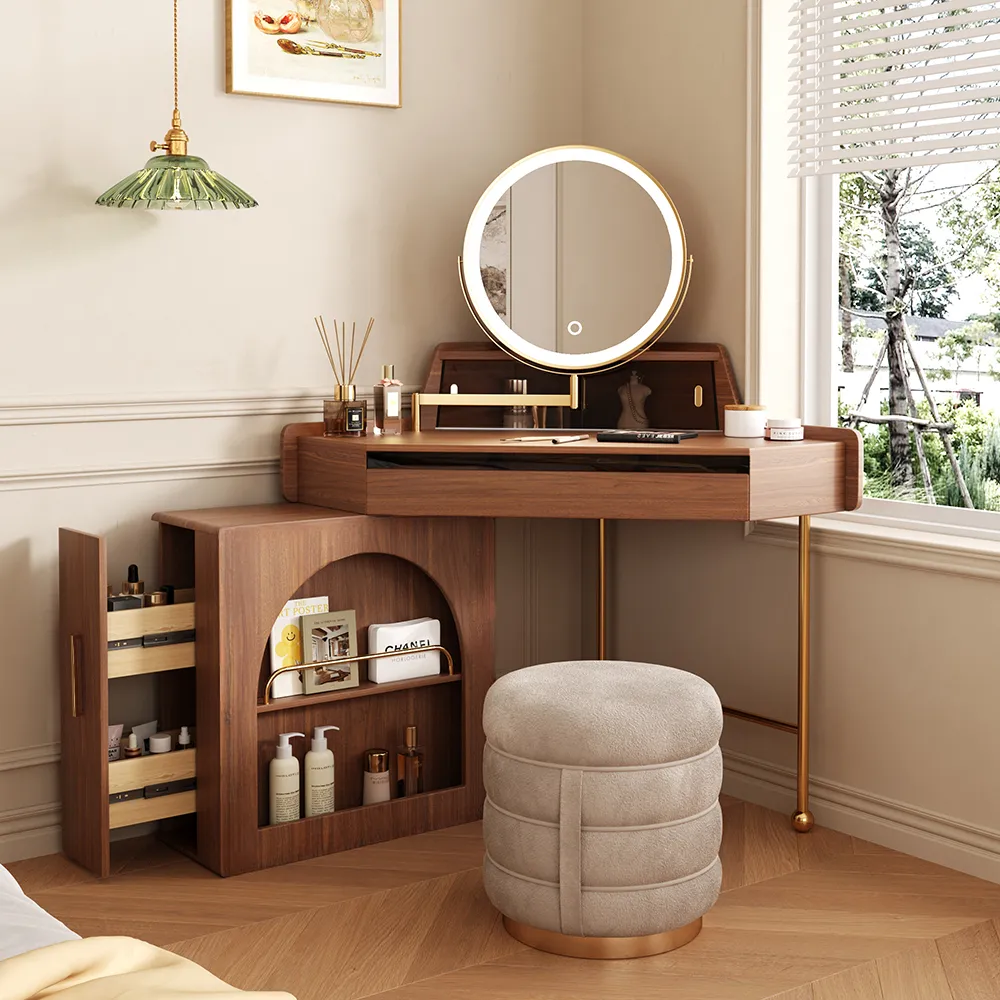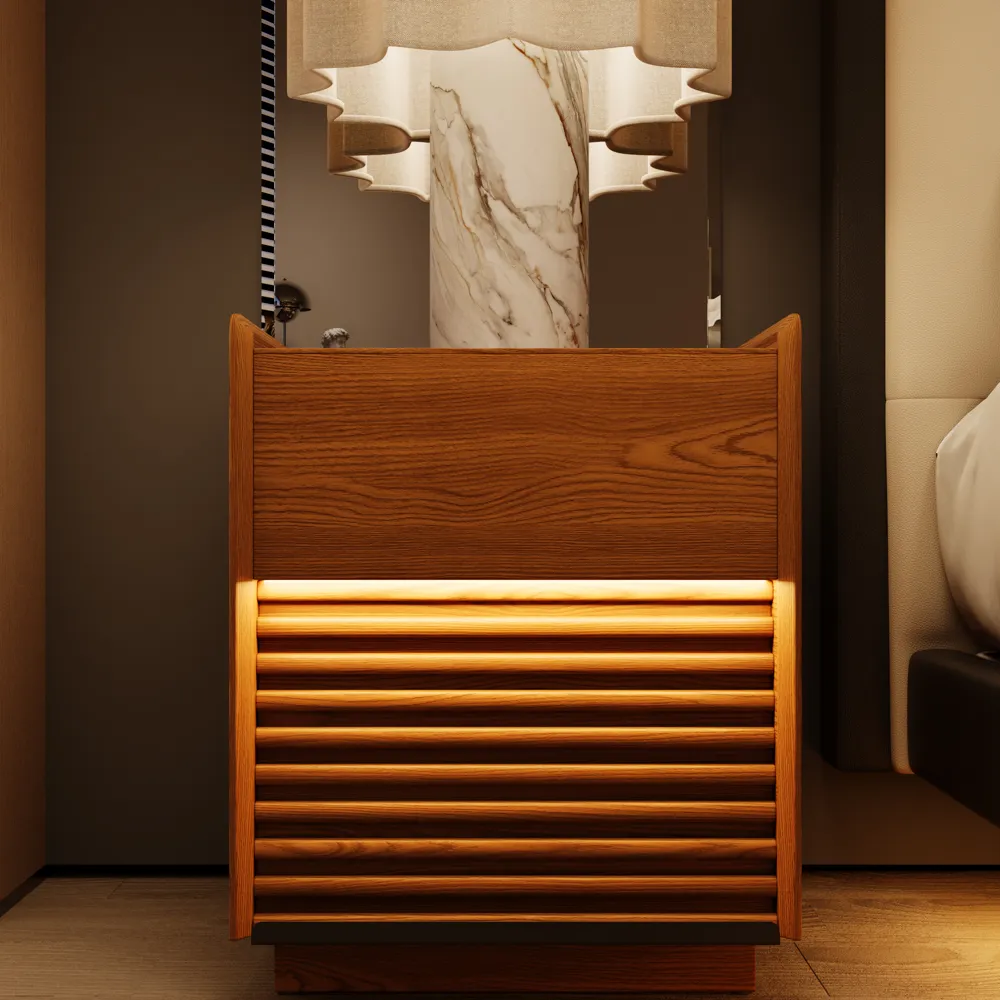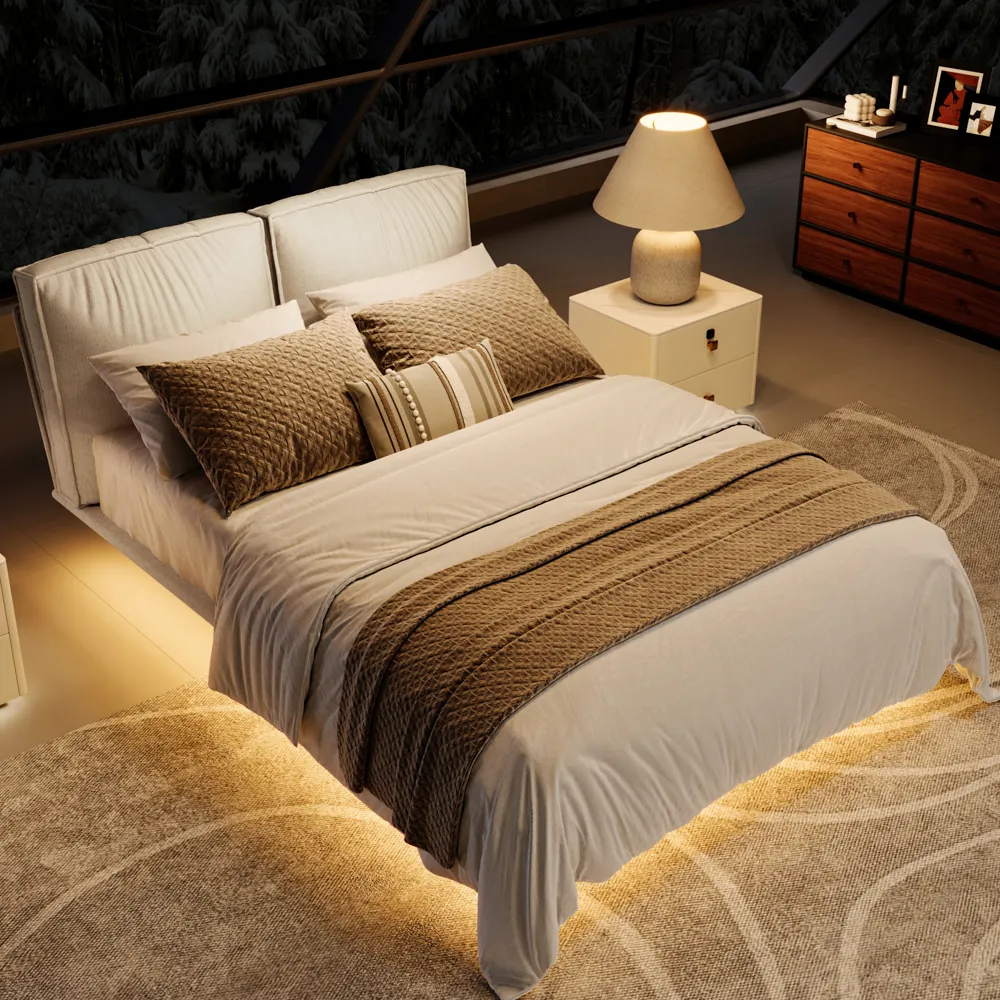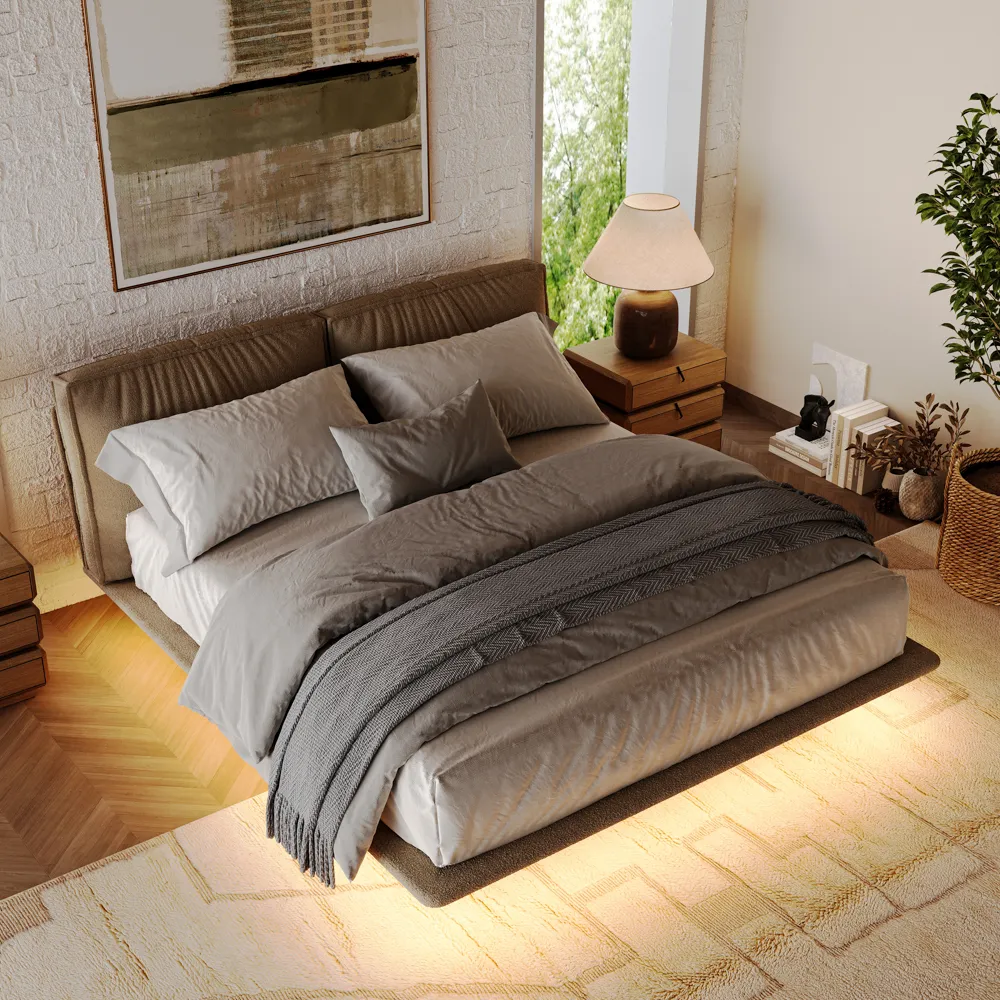This guide will walk you through practical feng shui bedroom layout tips, based on both tradition and modern living realities. We’ll help you make simple yet powerful changes to enhance your sleep and overall well-being.
Why Feng Shui Bedroom Design Matters
Your bedroom is not just a room—it’s your most intimate, restorative space. In Feng Shui, this area is where you recharge, not only physically but emotionally. A poorly arranged bedroom layout feng shui can block energy flow (called “chi”) and affect sleep quality, mood, and even relationships.
Signs your feng shui bedroom may be out of balance:
-
Chronic poor sleep, even with a good mattress
-
Relationship tension or lack of intimacy
-
Stale air, dim lighting, or tight, cluttered spaces
-
Your feet or head directly face a door while in bed
Feng Shui isn’t about superstition. It’s about flow, support, and connection between you and your environment.
Bed Placement: The Feng Shui Bed Position That Works
The bed is the heart of any feng shui bedroom—and where you place it matters most. The ideal position is known as the “command position”:
-
The bed should face the door diagonally, not directly
-
There should be a solid wall behind the headboard
-
Leave space on both sides of the bed to encourage balanced energy
This feng shui bed position helps create a secure and empowering energy flow, which is one of the most essential feng shui sleep tips for deeper rest and emotional balance. Avoid placing the bed directly in line with the door—what Feng Shui calls the “coffin position.” If unavoidable, soften the effect with a footboard or a low bench to symbolically block the energy stream.
Which Direction Should the Bed Face?
One of the most frequently asked questions about feng shui furniture placement is: Which direction should your head face while sleeping?
Traditions suggest:
-
South or east-facing headboards support restful, energized sleep
-
North-facing beds may feel colder or more stagnant
-
Avoid sleeping under exposed beams or sloped ceilings, which create a sense of pressure
Aligning your bed in the right direction complements your overall feng shui bedroom layout, helping your body rest in harmony with the room’s energy.
Mirrors and Symmetry: The Invisible Forces of Bedroom Feng Shui
In many feng shui bedroom designs, mirrors are one of the most misunderstood elements. A mirror facing the bed is believed to reflect energy at you, potentially disturbing your sleep or even symbolizing third-party interference in relationships.
To address this:
-
Avoid placing mirrors directly across from the bed
-
If one is unavoidable, use a curtain or a frosted finish to reduce reflection
-
Better yet, use mirrored furniture that gives you flexibility and function
For example, the Mid-Century Modern Corner Makeup Vanity with Rotating Mirror and LED Light is an ideal feng shui solution—it fits neatly into a corner, keeps energy moving freely, and the mirror can be easily turned away from the bed.

Equally important is balance. Symmetry on either side of your bed promotes relational harmony. Even if you’re sleeping alone, having matching nightstands is a strong feng shui signal of emotional equilibrium. Consider the Mid-Century Nightstand with LED Light, which adds gentle illumination and concealed storage to support peaceful, uncluttered chi. As a piece of feng shui bedroom furniture, it seamlessly blends functionality with energetic flow.

Small Bedroom? Feng Shui Still Works
Even if you’re working with limited space or a studio apartment, you can still apply feng shui furniture arrangement effectively:
-
Use a floating bed to allow energy to circulate below
-
If your bed faces the door, place a rug or bench at the foot for symbolic separation
-
Keep the space under your bed clear of clutter (only store soft bedding if necessary)
-
Opt for rounded furniture to reduce sharp energy points
The Modern Queen/King Size Floating Bed Frame with LED Lights is a great example of feng shui bed placement made modern. With its light-on-legs design, replaceable headboard, and ambient LED lighting, it supports both physical comfort and energetic uplift, especially when paired with balanced elements like matching nightstands.

Light, Air, and Calming Colors
Feng Shui isn’t just about placement—it’s also about the sensory atmosphere in your bedroom:
-
Let in natural light and open windows daily to refresh chi
-
Use soft, layered lighting at night to ease the transition to rest
-
Stick to earth tones, skin tones, or soft greens and blues—colors that soothe rather than stimulate
These are core feng shui sleep tips that help reset your nervous system and encourage long-term calm. Avoid bright reds or pure blacks, which may disrupt the yin (restful) energy needed in the bedroom.
Ready to Transform Your Bedroom Energy?
With just a few mindful changes to your feng shui bedroom layout, you can turn your space into a sanctuary of sleep, balance, and renewal. Whether it’s your bed direction, mirrored furniture, or floating bed frame, every detail matters when it comes to designing a bedroom that truly supports you.
Explore more serene, supportive pieces in our bedroom furniture collection and discover why so many customers trust Povison, the world’s best fully assembled furniture brand, to bring harmony and beauty home.
What to Read Next:
